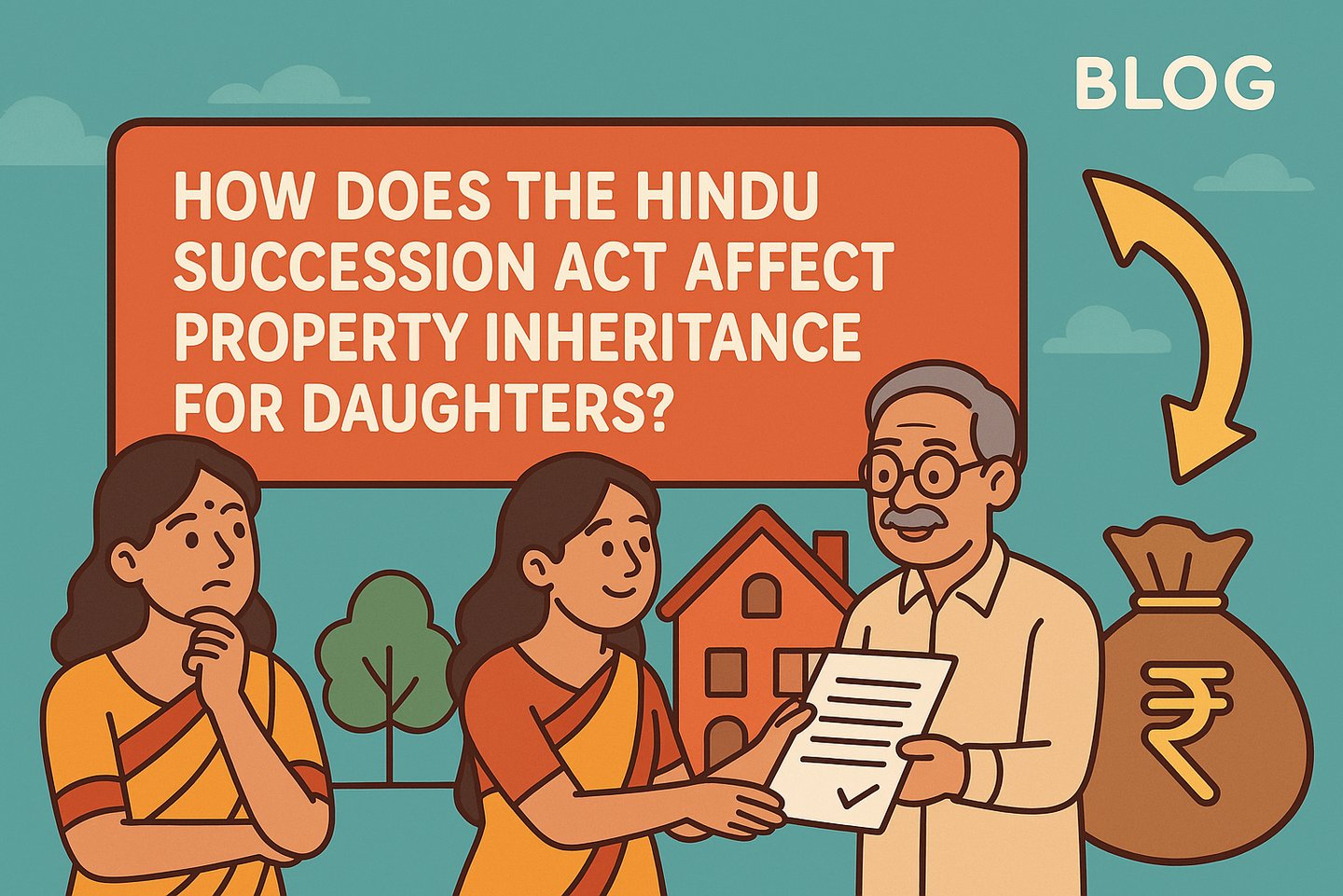How Does the Hindu Succession Act Affect Property Inheritance for Daughters?
This article discusses the 2005 Amendment's impact on daughters’ equal inheritance rights under the Hindu Succession Act and key judicial interpretations.
FAMILY LAW
Kaushiki Agrawal
7/23/20253 min read


For countless generations in India, daughters were customarily excluded from claiming a share in ancestral property. Although the Hindu Succession Act, 1956, was a groundbreaking piece of legislation in its own time, it was nonetheless gender biased, as it ensured that daughters were not granted coparcenary rights in joint Hindu family property governed by the Mitakshara law. In stark contrast, the Hindu Succession (Amendment) Act, 2005, redefined the legal position of daughters and placed them equal to sons when it comes to rights in coparcenary property. This landmark legal reform establishes a precedent for gender equality in property succession for Hindus. The article offers a concise overview of the relevant provisions, interpretations, and ramifications of the 2005 reform.
1. Applicability of the Hindu Succession Act
The Act applies to:
Hindus by religion
Buddhists, Jains, and Sikhs
Anyone not governed by the laws of Muslims, Christians, Parsis, or Jews.
It deals with intestate succession (where there is no valid will, whether it be testamentary-privileged or contradicting intestate law) and whether it is separate property or ancestral. It is split into:
Class I heirs (children, spouse, mother)
Class II heirs (siblings, cousins, etc.)
Agnates and Cognates
Under the 1956 law, daughters were not coparceners in Mitakshara joint family property, and therefore could not demand partition and inheritance in the same way as sons.
2. What Are Coparcenary Rights?
A coparcener refers to a member of a Hindu joint family who holds an inherent right to ancestral property by birth. Under Mitakshara law, traditionally this privilege was reserved exclusively for male descendants until the 2005 amendment. Coparcenary rights include:
Right to ask for partition
Right to ask for an equal share in ancestral property
Right to devise their share by will
3. The 2005 Amendment: A Landmark Reform
The Hindu Succession (Amendment) Act, 2005, inserted an important provision in the Act:
Section 6(1) says, "Every daughter born is recognised as a coparcener by birth in her own right in the same manner, just like a son."
Highlights:
Daughters have the same rights and liabilities as sons.
Daughters are also entitled to request partition, claim ancestral property, and become kartas.
This is now applicable to daughters, irrespective of their marital status.
This amendment practically abolished gender bias concerning estates in joint family property.
4. Landmark Judgments Clarifying the Law
a. Prakash v. Phulavati (2016): The Supreme Court held that on 9th September 2005 (the date when the amendment came into force), both the father and daughter had to be alive in order for the daughter to claim rights.
b. Vineeta Sharma case (2020): In this case, a 3-judge bench of the Supreme Court held that:
Daughters have coparcenary rights from birth.
The amendment is retrospective.
Daughters can claim a partition even if their father died before 2005, as long as the partition has not already taken place.
This ruling overturned Phulavati and provided clarity to a law that had been ambiguous.
5. Are Daughters Liable for Debts of Joint Family?
Yes. Along with coparcenary rights comes coparcenary liability. In other words, daughters will be equally liable for:
The management of ancestral debts,
The management of liabilities as karta, if any.
The management of all legal claims regarding partition.
In other words, this creates parity between equal rights and being equally liable.
6. Rights of Married and Unmarried Daughters
The statute is applicable regardless of marital status. A daughter can:
Commence partition
Inherit ancestral property
Be appointed as karta (karta means manager of Hindu Undivided Family)
Marital status does not extinguish or prejudice her rights under section 6 of the amended act.
7. Limitations and Exceptions
Notwithstanding progressive laws, challenges remain:
a. Oral partitions or registered settlements before 2005 remain valid.
b. The law does not apply at all to properties that were divested by will.
c. Many families still resist partition if initiated by daughters.
d. In some cases, daughters have to go to court to assert their share.
In conclusion, the Hindu Succession Act (Amendment) 2005 marks a historic turning point in advancing gender equality within India's legal framework for property rights. By recognizing daughters as equal coparceners, it dismantled centuries of patriarchal exclusion and laid the foundation for genuine justice in inheritance laws. Important decisions, in particular the case of Vineeta Sharma vs. Rakesh Sharma, have clarified legal confusion and confirmed that the law applies retrospectively. Nonetheless, ingrained and entrenched social resistance and procedural challenges remain, and whilst there is an opportunity for awareness, legal education, and advocacy, law alone cannot guarantee the changes the law signals. At the same time, we note that educating daughters about their property rights is key to ensuring their economic independence and supporting constitutional equality.
